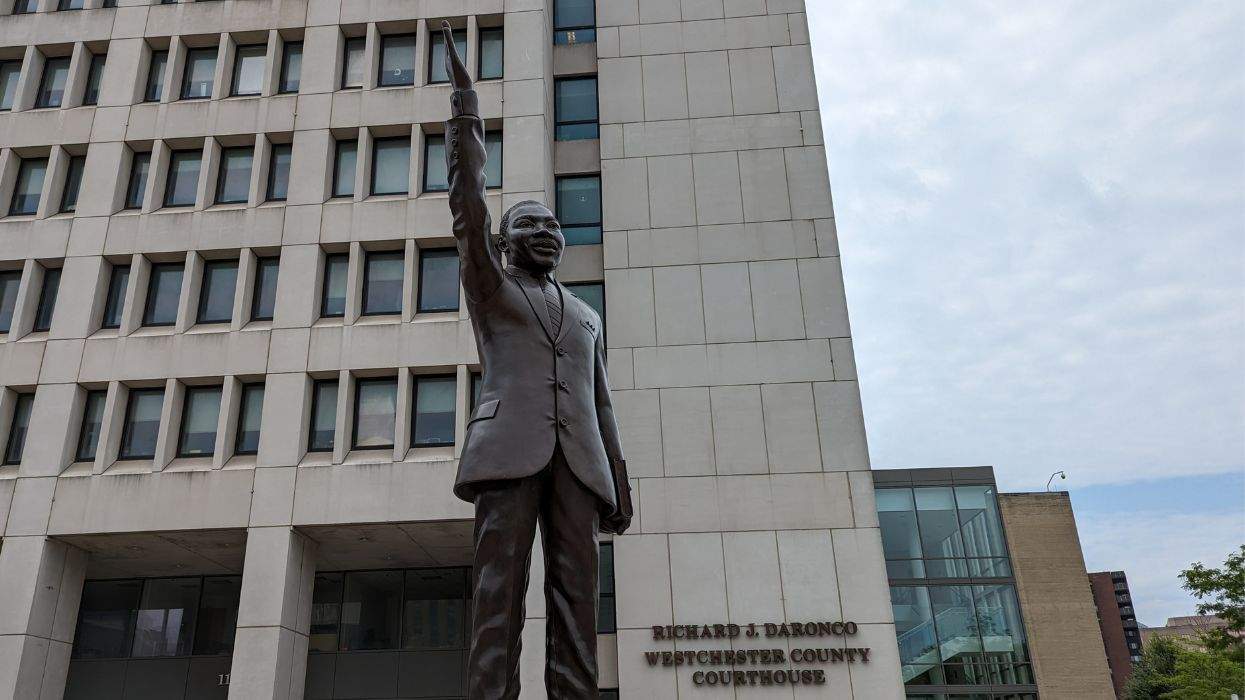In 2015 when Barack Obama visited his father's country Kenya, it was expected that he would speak out in favour of gay rights. It was also expected that the country's president, Uhuru Kenyatta, would respond forcefully in favour of its repressive laws.
Both expectations were fulfilled.
But what looked on the surface like a typical confrontation was received differently by many of the country's thoughtful activists: they heard a call for cautious change.
"It's very difficult for us to be able to impose on people that which they themselves do not accept," President Kenyatta said at the July bilateral press conference. "For Kenyans today, the issue of gay rights is really a non-issue."
While international media and activists across the world -- rightly -- bristled that he would dismiss the lives and humanity of his own citizens, what was happening was more nuanced: the president was making clear that in a democracy, he is powerless to make changes that an overwhelming majority of his compatriots do not support. In the last known polling of the country's views on the subject, 95 percent of the population believe homosexual activity should remain criminalized.
But Kenyatta's statements indicated a significant shift in presidential tone. After all, less than a decade ago, Prime Minister Ralia Odinga had said it was "madness for a man to fall in love with another man while there were plenty of women." He also allegedly ordered the arrest of gay people.
To those who demanded stronger language, the lack of progress following Obama's visit can be pointed to as proof of necessity. Sodomy remains a felony under Section 162 of the Kenyan Penal Code, punishable by 14 years' imprisonment, and three sections down, any sexual activity between men is labelled "gross indecency," punishable by five years in prison.
But the visit brought momentum. Activists were able to continue their work with a bit more urgency but not increased danger. An anti-homosexuality bill that was lying in parliament also died.
And progress continued.
Last year, an appeals court in Mombasa ruled that conducting anal exams on people who are suspected of same-sex activity is unconstitutional, reversing a 2016 court ruling accepting same -- following the arrest and forced anal exams of two men in Kwale County in 2015.
Then the High Court of Kenya heard a case filed by the non-government organization, Kenyan National Gay and Lesbian Rights Commission, arguing that sections of government code making gay sex illegal is an affront to the constitution.
The case climbs on the momentum of the Indian Supreme Court overturning its version of this law, one it shared with Kenya based on their common history of British colonial rule.
Progress also comes in the form of the 2018 film, Rafiki that bravely told a lesbian love story set in Nairobi. Banned in the country, the filmmakers took the case to court, and got a victory -- it was allowed to be shown in selected cinemas.
The grand finale of these small victories was to be unveiled in February, when the high court was scheduled to announce its ruling on the gay sex case. The court punted however, moving the decision to this month -- saying they needed to spend more time.
This was a big deal.
For a country which, like mine own country Nigeria, actively celebrates homophobia to ask for more time to deliberate the rights of people whose humanity it would not even have considered a decade ago is the surest sign of progress unfolding, one that has taken a long time in coming.
It will of course be better for the cause of rights for the court to affirm the humanity of gay people in that country when the judgement arrives this month.
But even if it doesn't, there will be great momentum for those in the country and across Africa who are dedicated to winning this victory. The victory -- either of legal reform, or issue momentum -- comes because of the long term vision and tenacity of Kenya's brave rights activists, who do this work at considerable risk to life, livelihood and reputation.
They make me incredibly proud, and history will be incredibly kind to them.
Chude Jideonwo is a storyteller, using the research and evidence on human flourishing to inspire new narratives about politics, markets, faith, identity and society in Africa. He is founder of happiness and resilience company, Joy, Inc. (joyinc.xyz) and an Archbishop Desmond Tutu Fellow.















